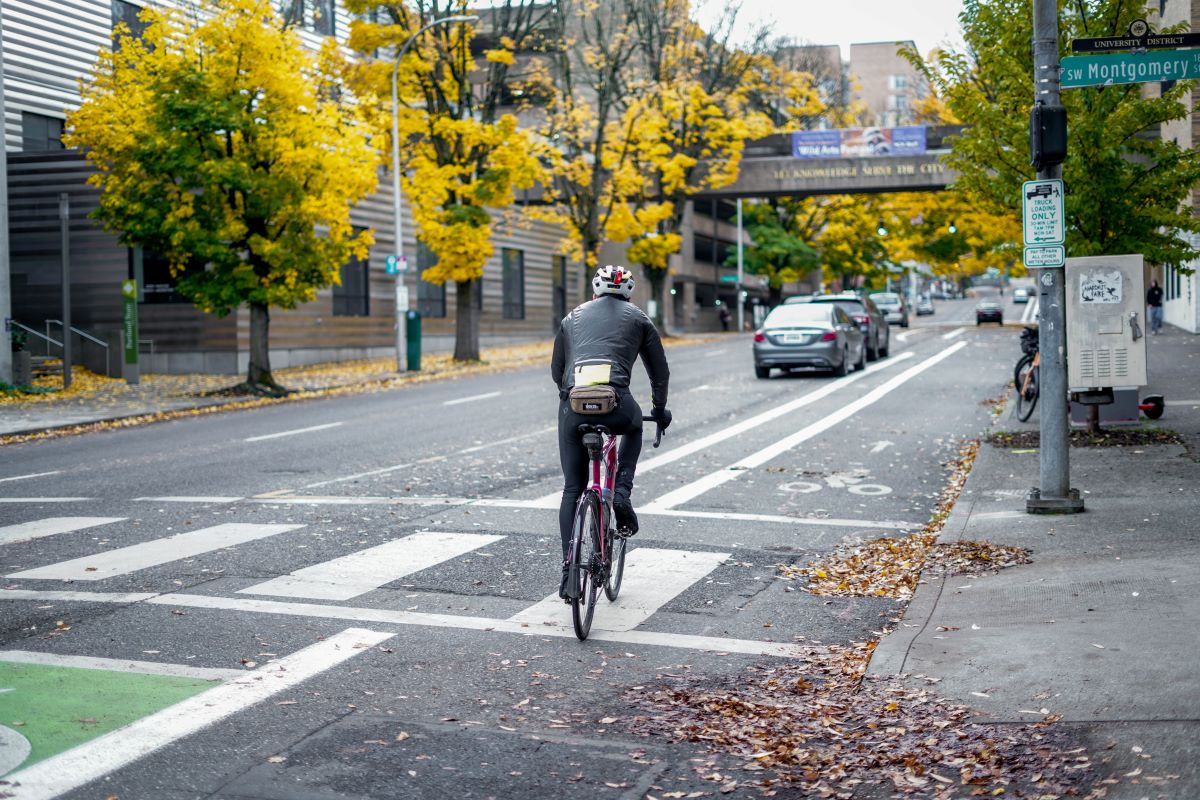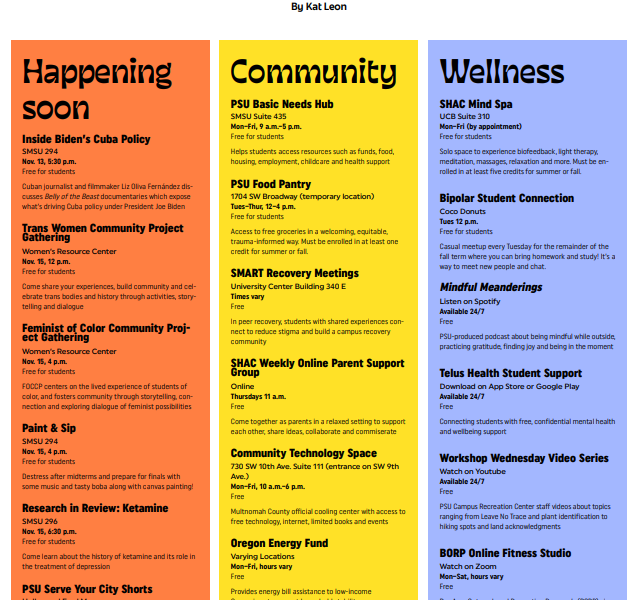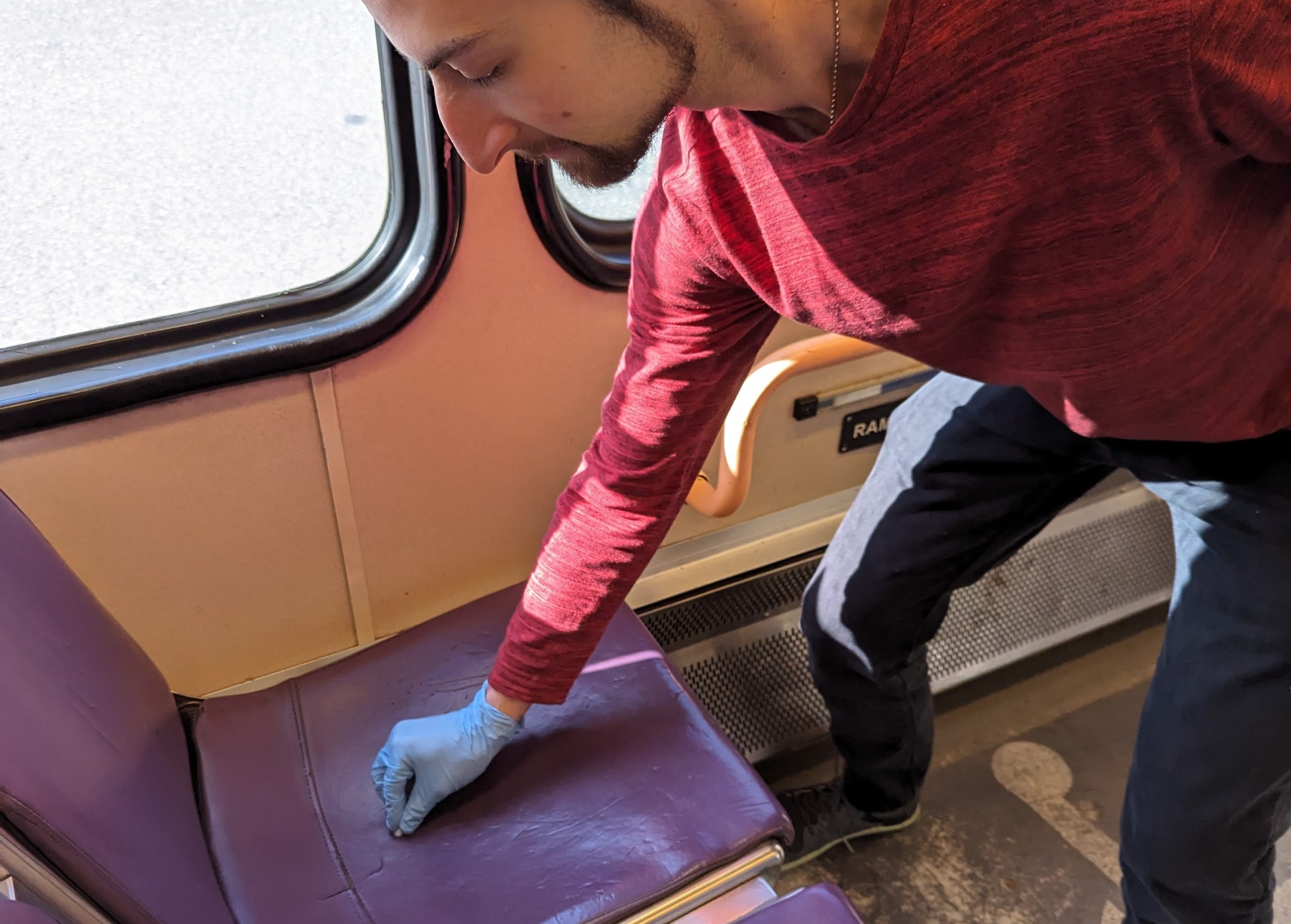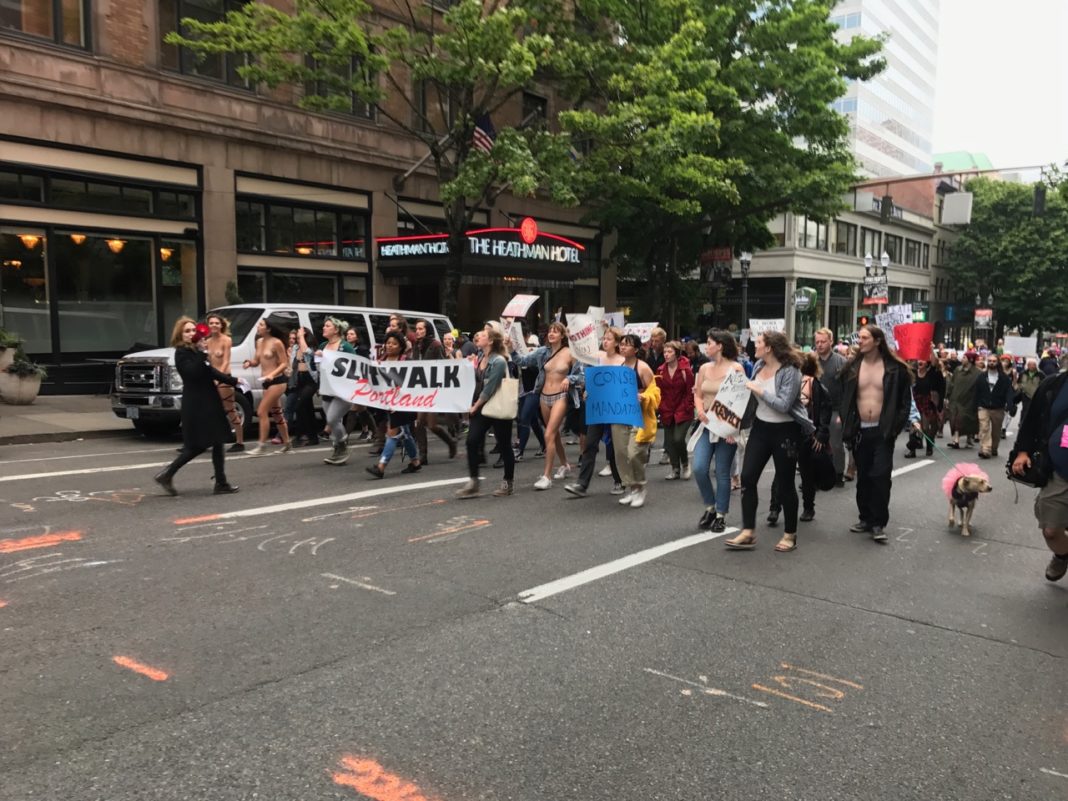In September, Bike Portland reported that the Portland Bureau of Transportation (PBOT) Director Millicent Williams emailed several select staff members with plans to remove the 16-block protected bike lane between NW Hoyt and SW Salmon in downtown Portland.
This plan would have resulted in less safe bike lanes on Broadway—a highly populated urban area that PBOT has included in their High Crash Network—a list of streets where crash-related severe injuries and fatalities occur at an above-average rate.
Though PBOT has now rolled back its plans to change the Broadway bike lanes, the proximity to the Portland State campus raises concerns among many students and staff.
Considering our status as a commuter campus, where many students rely on bikes for commuting, the potential for increased safety risks heightens the recognition of this issue as a significant problem.
In an anonymous survey conducted by Portland State Vanguard, students expressed their concerns with potential plans to change bike lanes.
One student said they found the potential removal of these protected bike lanes extremely disappointing.
“Portland is one of the few large cities that truly cherishes and embraces biking culture, and this should be protected and considered in all aspects of transportation,” the surveyee stated. “Biking is sustainable, cheap and creates community, and this effort is a dangerous precedent in eliminating non-car transportation. This is especially important at PSU, with a large number of students, staff and faculty relying on the ease of biking to get to classes and work. Many PSU community members live on campus and use bikes to get around the campus.”
Over a 14-year period, PBOT created a parking-protected bike lane from the Broadway Bridge to Interstate 405. This is an area where parking spots are away from the curb, creating a wider lane for bikes.
Bike Portland reported that PBOT Commissioner Mingus Mapps, alongside Williams, wanted to revert the southern section of these parking-protected bike lanes to their previous form to allow more parking, even though it would put bikers in a dangerous position with the bike lane being between car doors and car drivers.
The motives behind this proposed change were unclear. However, Bike Portland explained how many businesses on Broadway have expressed dissatisfaction with the bike lanes, such as the Historic Benson Hotel. George Schweitzer, the hotel’s general manager, has contacted City Hall with concerns regarding alleged conflicts between bikers and his hotel customers.
According to Bike Portland, Schweitzer said the bike lanes have been “crazy since they went in.” From his viewpoint, Schweitzer said the bike lanes are problematic and supports the plan to revert them to their original design.
The Broadway bike lane is one of many bike lanes in Portland, causing concern. David Brink is a PSU staff member and frequent biker who works at the Campus Recreation Center and lives in Southeast Portland. Brink said he’s aware of the restructuring of some of the bike lanes in his area.
“I think it is kind of a step in the wrong direction, considering that [the bike lanes] are already set up,” Brink said. “The main argument I’m hearing for taking them down is lack of parking, but I feel like that’s an easy issue to solve, considering there are alternatives that Portland can do other than street parking. I believe that increasing access to bike lanes and safe alternative modes of transportation will create a less congested city. Portland streets and infrastructure seem to not be set up correctly for everybody to drive cars, let alone with the [population] growth that we are seeing now.”
A Sept. 19 statement from PBOT to Bike Portland further explained the issues surrounding the Broadway bike lanes, citing mixed feedback from community members as the reasoning behind their decision to reevaluate their design.
“After receiving additional feedback from PBOT staff, Director Williams asked staff to prepare 1) a full project evaluation that considers all users, 2) proposals for upgrading or ‘hardening’ portions of the existing bike lane in its current configuration and in a potential future state (similar to the proposed bike lane for the forthcoming SW Fourth Avenue project) and 3) a proposal for a modified bike lane that clears parking corners along the corridor and increases signage and paint, while also returning the bike lane to its 2018 configuration between NW Hoyt and SW Salmon streets,” PBOT stated. “PBOT staff will be preparing these options, offering additional insights and engaging in public outreach in the coming months. Additional information will be available on the SW Broadway Bike Improvements Project website in the coming weeks.”
After hearing significant community feedback, PBOT updated their project website on Sept. 27. The update explained that—based on this feedback and direction from Williams—PBOT will move forward with a full project evaluation and implement the previously planned and budgeted safety upgrades on Broadway which it says were delayed last year due to contractor availability.
These safety upgrades will include improved valet platforms for Arlene Schnitzer Concert Hall, plus the Vance, Benson and Heathman hotels, which will reduce conflicts between cyclists and customers. Construction is set to begin this winter, though no official date has been set.
The traffic signals at intersections on SW Oak, Taylor and Jefferson will also be updated to reduce conflicts between right-turning vehicles and cyclists by featuring bicycle and right-turn signal phases. Construction for this will likely begin next year. PBOT also said it plans to expand and harden portions of the existing bike lane.
This statement indicates PBOT’s decision to focus on creating a better Broadway bike lane for all instead of reverting it to its previous, reportedly unsafe form.
However, advocates of the bike lane remain concerned about the bike lane’s future, given mixed messaging and desire to see the city prioritize biking commuters.
“The TriMet streetcar and buses are not convenient and quick to get to opposite ends, and having bikes and biking lanes be very accessible allows for a more cohesive and easy commute,” another surveyee stated. “While the proposed project appears to keep bikers safer, I still feel that limiting or removing access is rarely an improvement—I personally feel that expanding and encouraging biking takes importance over any freeway or highway project and should be the initial concern… I do not accept these changes with open arms, given how mixed the reception is by bikers. There may be benefits that come along with drawbacks, and we need to discuss these even if the project is an improvement.”
A third anonymous surveyee described these potential plans as a step backward which will only make Portland roads more dangerous. “The bike lanes may not be the most well-designed and I think they are halfway attempts sometimes,” they stated. “But that means we should expand and improve them, not remove them.”






